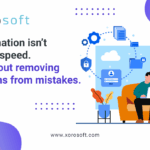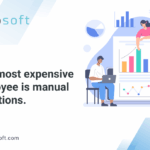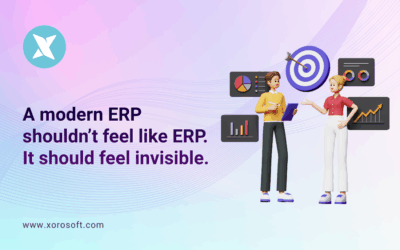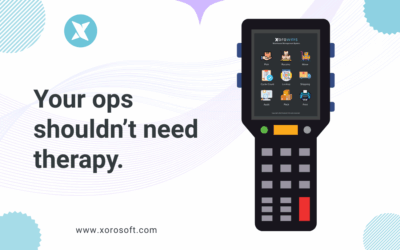
Introduction to ERP Systems and Their Importance for Businesses
In today’s fast-paced business environment, companies are constantly seeking ways to streamline their operations and improve productivity. One crucial tool that enables them to achieve this is an Enterprise Resource Planning (ERP) system. An ERP system integrates various business functions such as finance, human resources, and supply chain management into a centralized platform, providing real-time visibility and data-driven insights.
ERP systems play a critical role in ensuring that businesses run smoothly and efficiently. They enable seamless communication and collaboration across departments, automate manual processes, and provide accurate and up-to-date information for decision-making. With the increasing reliance on ERP systems, it becomes paramount to prioritize data security to protect sensitive business assets.
Understanding the Need for Data Security in ERP Systems
Data security is a fundamental aspect of any business operation, and ERP systems are no exception. These systems store and process vast amounts of critical data, including financial information, customer records, and intellectual property. Without proper security measures in place, businesses are at risk of data breaches, unauthorized access, and potential financial losses.
The consequences of a data breach can be devastating for a business. It can lead to reputational damage, loss of customer trust, regulatory penalties, and legal liabilities. Moreover, the downtime caused by a security incident can disrupt business operations and result in significant financial losses.
Benefits of Data Security in Enhancing ERP System Efficiency
Implementing robust data security measures in ERP systems not only protects businesses from potential risks but also enhances system efficiency. Here are some key benefits of data security in ERP systems:
1. Protection of Sensitive Information
Data security measures such as encryption, access controls, and user authentication ensure that sensitive information remains confidential and only accessible to authorized personnel. By safeguarding sensitive data, businesses can mitigate the risk of data leaks and unauthorized access, preserving the integrity and trustworthiness of their ERP system.
2. Prevention of Data Loss
Data loss can occur due to various reasons, including hardware failure, human error, or malicious activities. Data security measures such as regular backups, disaster recovery plans, and data encryption minimize the risk of data loss and ensure business continuity. In the event of a system failure or unforeseen circumstances, businesses can quickly recover their data and resume operations without significant disruptions.
3. Improved System Performance
Data security measures optimize the performance of ERP systems by reducing the risk of malware attacks, system vulnerabilities, and unauthorized activities. By implementing firewalls, intrusion detection systems, and antivirus software, businesses can ensure that their ERP system operates at optimal performance levels, providing seamless access to critical data and facilitating efficient decision-making processes.
Common Data Security Threats and Their Impact on ERP Systems
Despite the importance of data security, ERP systems are vulnerable to various threats that can compromise their integrity and functionality. It is crucial for businesses to understand these threats and their potential impact to effectively mitigate the risks. Here are some common data security threats faced by ERP systems:
1. External Attacks
External attacks, such as hacking attempts, malware infections, and distributed denial of service (DDoS) attacks, pose a significant threat to ERP systems. Hackers target vulnerabilities in the system’s infrastructure or exploit human error to gain unauthorized access to sensitive data. These attacks can result in data breaches, data manipulation, and system downtime, leading to financial losses and reputational damage.
2. Insider Threats
Insider threats, whether intentional or unintentional, can jeopardize the security of ERP systems. Malicious insiders with privileged access can misuse their privileges to steal sensitive data, manipulate financial records, or disrupt system functionality. Unintentional insider threats, such as employees falling victim to phishing scams or unintentionally sharing confidential information, can also compromise data security.
3. Data Leakage
Data leakage occurs when sensitive information is unintentionally or maliciously disclosed to unauthorized individuals. This can happen through accidental email attachments, insecure data transfer, or inadequate access controls. Data leakage can have severe consequences, including regulatory non-compliance, loss of intellectual property, and damage to business reputation.
Best Practices for Implementing Data Security in ERP Systems
To effectively protect business assets and enhance ERP system efficiency, organizations should adopt best practices for implementing data security. Here are some key practices to consider:
1. Conduct a Comprehensive Risk Assessment
Before implementing data security measures, businesses should conduct a thorough risk assessment to identify potential vulnerabilities and assess the impact of security threats. This assessment should cover both technical vulnerabilities and human factors to ensure a holistic approach to data security.
2. Implement Strong Authentication and Access Controls
Strong authentication mechanisms, such as multi-factor authentication and biometric authentication, should be enforced to prevent unauthorized access to the ERP system. User access controls should be implemented based on the principle of least privilege, ensuring that users only have access to the data necessary for their roles.
3. Regularly Update and Patch ERP Systems
ERP system vendors regularly release updates and patches to address known vulnerabilities and improve system security. It is crucial for businesses to stay up-to-date with these updates and promptly apply them to their ERP systems. Regular system maintenance and monitoring should also be conducted to detect and address any security issues.
How Xorosoft ERP Solution Integrates Data Security for Enhanced Efficiency
Xorosoft, a leading provider of ERP solutions, recognizes the critical importance of data security in ERP systems. Their ERP solution incorporates robust data security measures to protect business assets and enhance system efficiency.
Xorosoft’s ERP solution utilizes advanced encryption algorithms to ensure the confidentiality and integrity of data stored in the system. Access controls and user authentication mechanisms are implemented to prevent unauthorized access to sensitive information. Regular security audits and vulnerability assessments are conducted to identify potential risks and address them proactively.
Furthermore, Xorosoft’s ERP solution offers comprehensive user training programs to educate employees about data security best practices and raise awareness about potential threats. This proactive approach ensures that businesses using Xorosoft’s ERP solution are equipped with the knowledge and skills to actively contribute to data security efforts.
The Role of Data Security in Inventory Management within ERP Systems
Inventory management is a critical function within ERP systems, and data security plays a crucial role in ensuring its effectiveness. By implementing data security measures in inventory management processes, businesses can:
- Safeguard inventory data from unauthorized access or manipulation.
- Prevent inventory discrepancies and ensure accurate stock levels.
- Protect sensitive supplier and customer information related to inventory management.
- Mitigate the risk of counterfeit or fraudulent inventory transactions.
Data security measures such as encryption of inventory data, access controls for inventory management modules, and regular audit trails help businesses maintain the integrity and reliability of their inventory management processes within the ERP system.
The Impact of Data Security on Accounting Processes in ERP Systems
Accounting processes are highly sensitive, involving financial data, payroll information, and tax records. Data security is of utmost importance in ensuring the accuracy and confidentiality of accounting processes within ERP systems. Here are some key impacts of data security on accounting processes:
- Prevention of Financial Fraud: Data security measures such as segregation of duties and transaction monitoring help detect and prevent financial fraud within accounting processes. By implementing these measures, businesses can identify any suspicious activities and take appropriate actions to mitigate risks.
- Ensuring Data Accuracy: Data security measures, including data validation checks and access controls, ensure the accuracy and integrity of financial data within ERP systems. By preventing unauthorized modifications or tampering of financial records, businesses can rely on the accuracy of their accounting information for decision-making processes.
- Regulatory Compliance: Data security is closely tied to regulatory compliance in accounting processes. ERP systems with robust data security measures help businesses meet regulatory requirements, such as the Sarbanes-Oxley Act (SOX) or the General Data Protection Regulation (GDPR). Non-compliance with these regulations can result in severe penalties and legal liabilities.
Xorosoft’s Approach to Data Security in Their ERP Solution
Xorosoft recognizes that data security is a top priority for businesses relying on their ERP solution. They have implemented a comprehensive approach to data security, ensuring that their ERP solution meets the highest standards of security and reliability.
Xorosoft’s ERP solution utilizes state-of-the-art encryption algorithms to protect data at rest and in transit. Access controls and user authentication mechanisms are implemented to prevent unauthorized access to sensitive information. The solution also offers robust audit trails and logging capabilities to track user activities within the system.
Furthermore, Xorosoft regularly updates their ERP solution to address emerging security threats and vulnerabilities. They collaborate with leading cybersecurity experts to stay ahead of the latest threats and incorporate industry best practices into their solution.
Conclusion – The Importance of Prioritizing Data Security in ERP Systems for Business Success
In an increasingly digital and interconnected business landscape, data security is of paramount importance for protecting business assets and ensuring operational efficiency. ERP systems, being the backbone of many organizations, require robust data security measures to safeguard critical information and mitigate potential risks.
By prioritizing data security in ERP systems, businesses can reap numerous benefits, including protection of sensitive information, prevention of data loss, and improved system performance. Implementing best practices for data security and leveraging solutions like Xorosoft’s ERP solution can help businesses enhance their overall security posture and achieve long-term success.
In conclusion, protecting your business assets through data security is not just a necessary step; it is an essential investment in the future of your organization. Don’t leave your ERP system vulnerable to security threats. Prioritize data security, implement best practices, and consider partnering with trusted providers like Xorosoft to ensure the efficiency, reliability, and security of your ERP system. Book a demo with Xorosoft today and take the first step towards securing your business’s future.









